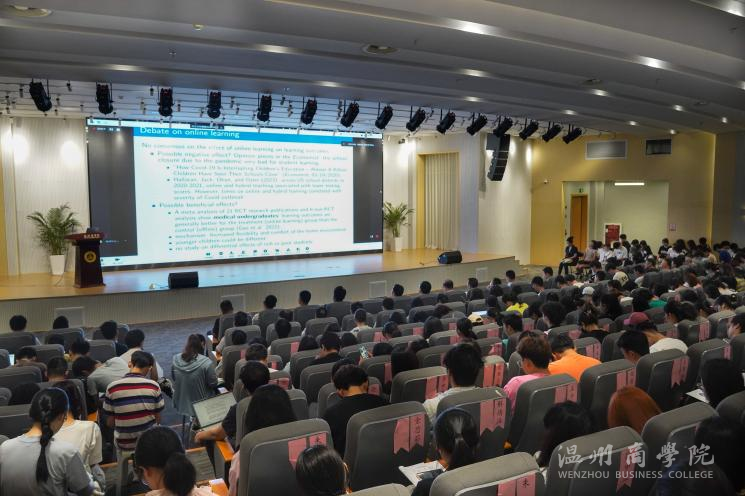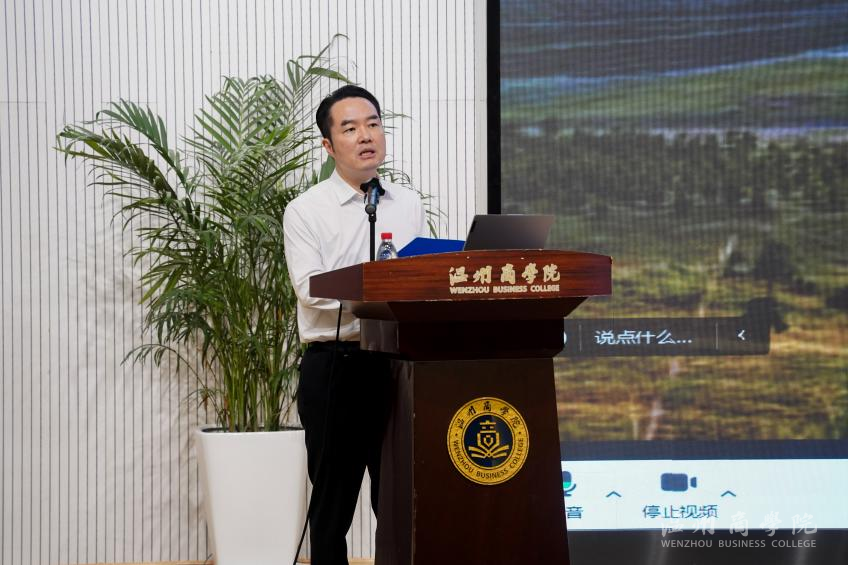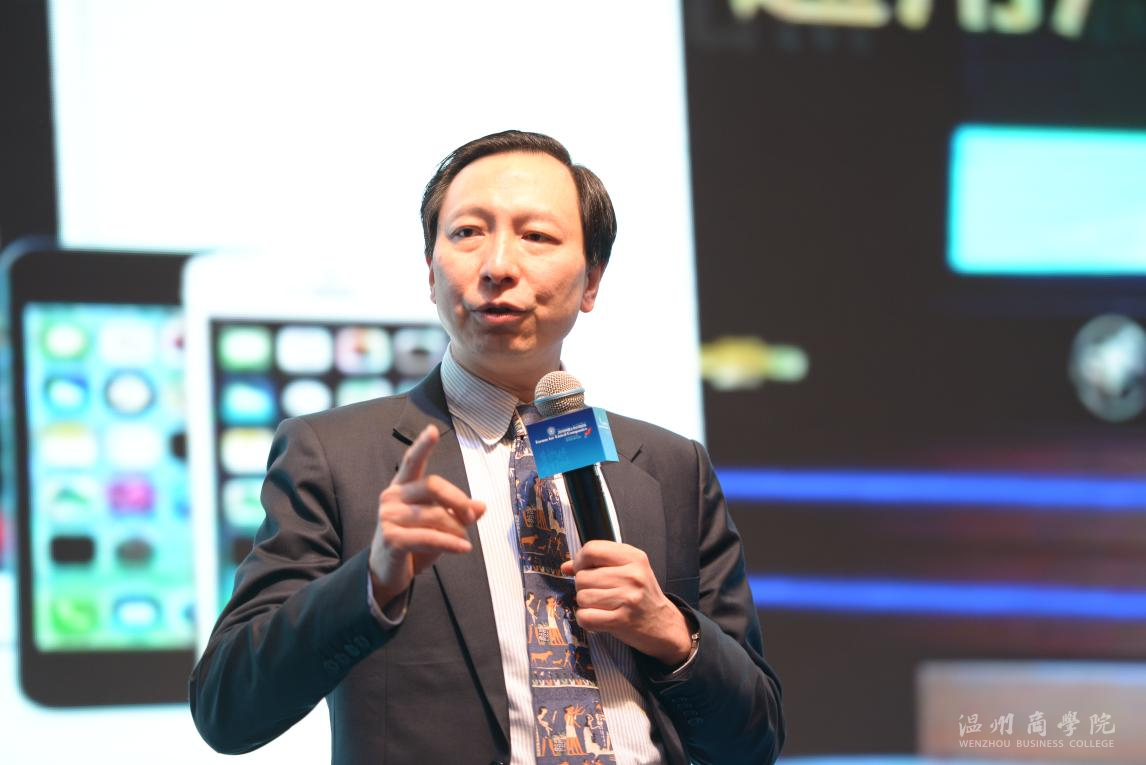author:source:News CenterTime:2023-06-28 10:10:00
Professor Wei Shangjin from Columbia Business School was invited to give an academic lecture for teachers and students of WZBC on the morning of June 27th, . Professor Zhang Xiaohong, Vice President of WZBC, dean of the China Financial Research Institute of Zhejiang University of Finance and Economics, and doctoral supervisor, presided over it. WZBC’s leaders Zhou Xiangzhe, Xie Jian, Zhao Xinze, Tang Ruo, Hu Jiang and others attended the lecture.

At 9 a.m. that day, Bowen Lecture Hall was full. Professor Wei Shangjin took “Online Classes and Educational Equity: Research Based on Digital Footprint” as the topic, using economic research methods to observe the impact of digital technology education on the academic performance of children from rich and poor families during the COVID-19 epidemic, and drew relevant research conclusions. In the lecture, he used a set of mathematical formulas as an introduction, and used digital technology to deeply analyze the empirical academic research path of social phenomena, which greatly benefited the teachers and students in the audience.

Columbia Business School is a world-renowned business school and is known as one of the top business schools with the most difficult admissions in the world. So far, it has produced 13 Nobel Prize winners in economics. Knowing that the famous professor of the business school would give an academic lecture, Bowen Lecture Hall was full of teachers and students who came here admiringly early in the morning. Due to the limited number of seats, those who long to listen to the lecture must make an appointment in advance and open the Tencent meeting.

“What impact did your experience in an international institution have on your academic research?” “How to solve a series of problems caused by education involution?” During the interactive session of more than one hour, the students in the audience raised questions about finance, technology and many other problems in the field. Professor Wei Shangjin solved the puzzles one by one and provided valuable suggestions. He sent a message to teachers and students that finding the optimal solution under constraints is the essence of economic methodology. During the economic research we should broaden horizons, get in touch with society, be good at combining theory with practice, and find important and interesting research topics which have no ready-made answers. .

Wei Shangjin is the first official teacher of economics at Harvard University who was born in China. He is the Professor of Finance and Economics at Columbia University’s Graduate School of Business and School of International and Public Affairs. During 2014-2016, he served as Chief Economist of Asian Development Bank and Director General of its Economic Research and Regional Cooperation Department. Born in Shanghai, he graduated from Fudan University, Pennsylvania State University, and the University of California, Berkeley. After graduating with a Ph.D., he worked in the International Monetary Fund, the World Bank and other institutions. His research covers international trade, international finance, Chinese economy and other fields. He is the Chinese economist with the most highly cited articles in the world. He has won the Sun Yefang Economic Science Award twice. He is the author of Economic Globalization: Finance, Trade and Policy Reform, Finding the Optimal Economic Solution, China’s Role in Global Trade, etc.
(Translator: Wang Tianzhen)